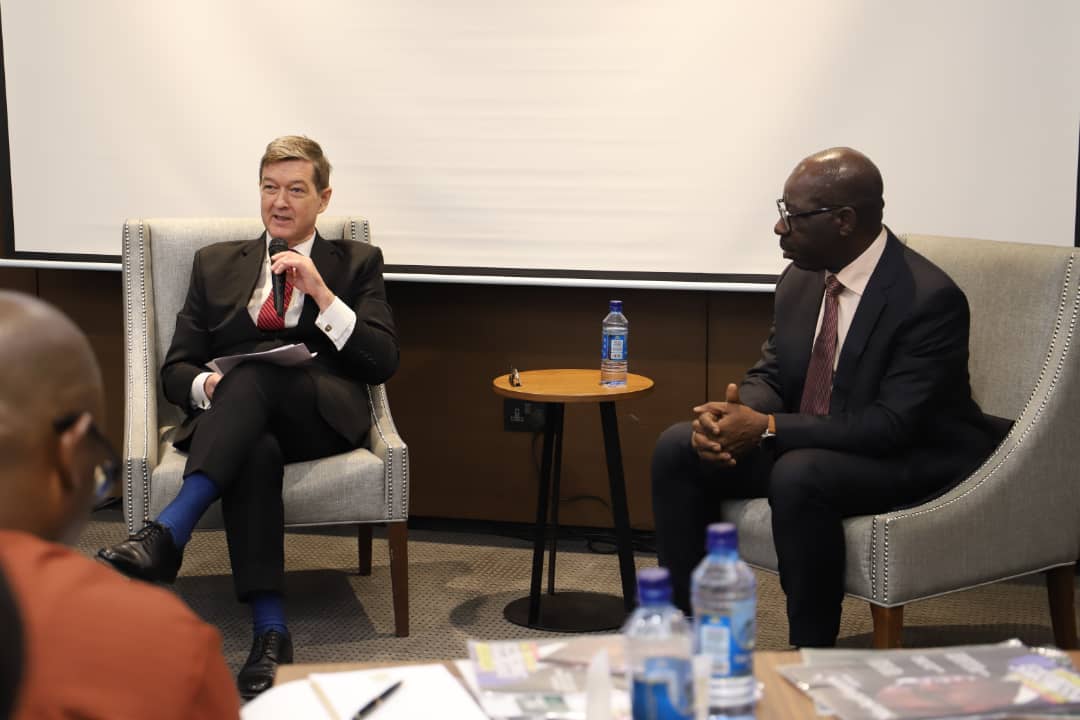Foreign investors shun Kano, Rivers, Ogun, 24 states
Foreign investors shunned Kano, Rivers, Ogun, and 24 other Nigerian states as foreign investments fell by 20.47 per cent ($1.37bn) from $6.7bn in 2021 to $5.33bn in 2022.
This is as foreign investments in the country’s commercial capital fell by 37.94 per cent from $5.82bn to $3.61bn year-on-year. Despite this fall, Lagos attracted 67.82 per cent ($3.61bn) of the total investments in 2022.
Other states that attracted foreign direct capital in 2022 include the Federal Capital Territory ($1.63bn), Akwa-Ibom ($42.52m), Anambra ($36.97m), Ekiti ($0.51m), Ondo ($0.20m), Oyo ($3m), Plateau ($0.04m), Katsina ($0.70m), and Kogi ($2m), according to the National Bureau of Statistics ‘Nigeria’s Capital Importation’ reports for the first, second, third, and fourth quarters of 2022.
Noting the general decline in capital importation, the NBS stated in its Q4 report, “In Q4 2022, total capital importation into Nigeria stood at $1.06bn, lower than $2.19bn recorded in Q4 2021, indicating a decrease of 51.51 per cent.
“When compared to the preceding quarter, capital importation also fell by 8.53 per cent from $1.16bn in Q3 2022.”
Despite launching six economic development clusters in 2021 and prospecting investors in Egypt and Ethiopia in 2022, Ogun State was unable to attract any foreign investments in 2022.
A slowdown in oil investment ensured that Rivers and Delta states (which both attracted $1m each in 2021) did not attract any in 2022.
Other notable states that were unable to attract investment in the year under review include Kano, Kaduna, Edo, Cross River, and Imo.
Abia, Adamawa, Bauchi, Bayelsa, Benue, Borno, Ebonyi, Enugu, Gombe, Jigawa, Kebbi, Kwara, Nasarawa, Niger, Osun, Sokoto, Taraba, Yobe and Zamfara were also unable to attract investors.
In 2022, 14 Nigerian governors visited Dubai, the United Arab Emirates, to seek foreign investment according to the ICIR. The governors included those of Abia, Niger, Sokoto, and Bayelsa states.
Commenting on state investments in Q4 2022, the NBS said, “By Destination of Investment, Lagos state remained the top destination in Q4 2022 with $600.54m, accounting for 56.62 per cent of total capital investment in Nigeria.
“This was followed by Abuja (FCT), valued at $424.50 million (40.02 per cent).”
According to the statistics body of the country, investment (capital importation) data is obtained from the Central Bank of Nigeria and includes imported physical capital, such as equipment, and financial capital importation.
These investments are divided into three main categories: foreign direct investment, portfolio investment, and other investments.
In 2022, FDI fell by 33.02 per cent y-o-y to $468.08m from $698.78m, FPI fell by 27.86 per cent y-o-y to $2.44bn from $3.39bn, and other investments which include trade credits, loans, currency deposits fell by 7.55 y-o-y to $2.42bn from $2.62bn.
Explaining inflow type in Q4 2022, the statistics body stated, “The largest capital importation during the period was received from other investment, which accounted for 65.17 per cent ($691.23m) of total capital imported in Q4 2022.
“This was followed by Portfolio Investment with 26.89 per cent ($285.26m) and FDI with 7.94 per cent ($84.23m).
Related News
Indian companies invest $19bn in Nigeria
Investments from UK, US drop by $242m
FG pays foreign firm $496m for contract violation
The banking sector accounted for most of the foreign investments in the country with $2.09bn, this was followed by the production sector with $948.42m. Most of the foreign capital that flowed into Nigeria in 2022 came from the United Kingdom ($2.76bn).
Foreign inflows into Nigeria have fallen drastically over the years with inflows falling by 77.79 per cent from $23.99bn in 2019 to $5.33bn in 2022. Nigeria’s challenge with foreign investments is connected to the limited forex availability, security concerns, and structural challenges plaguing the country according to the World Bank.
In its ‘Nigeria Development Update (December 2022): Nigeria’s Choice’ report, the global bank stated that this is causing a net withdrawal of equity by foreign investors in the country.
The World Bank has said foreign direct investment in Nigeria remains low because of limited forex availability, security concerns, and other structural challenges.
It said, “Net foreign direct investment and foreign portfolio investment flows into the Nigerian economy remain low, totalling only about 1 per cent of GDP.
“Net FDI inflows are negative, reflecting net withdrawals of equity by foreign investors. FDI and FPI flow into Nigeria do not compare favourably with similar economies of the world, reflecting difficulties with FX availability, security concerns, and other structural challenges in recent years.
“Low growth and slow structural transformation have contributed to this outcome — the pace of structural transformation of the domestic economy of the 2000s has not been sustained over a sufficiently long period.”


